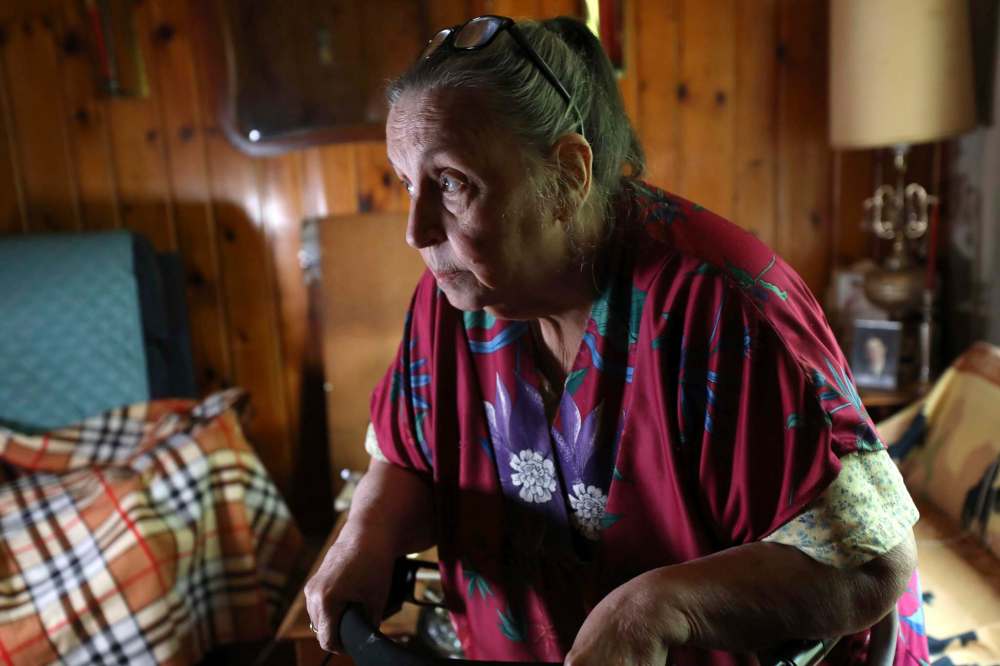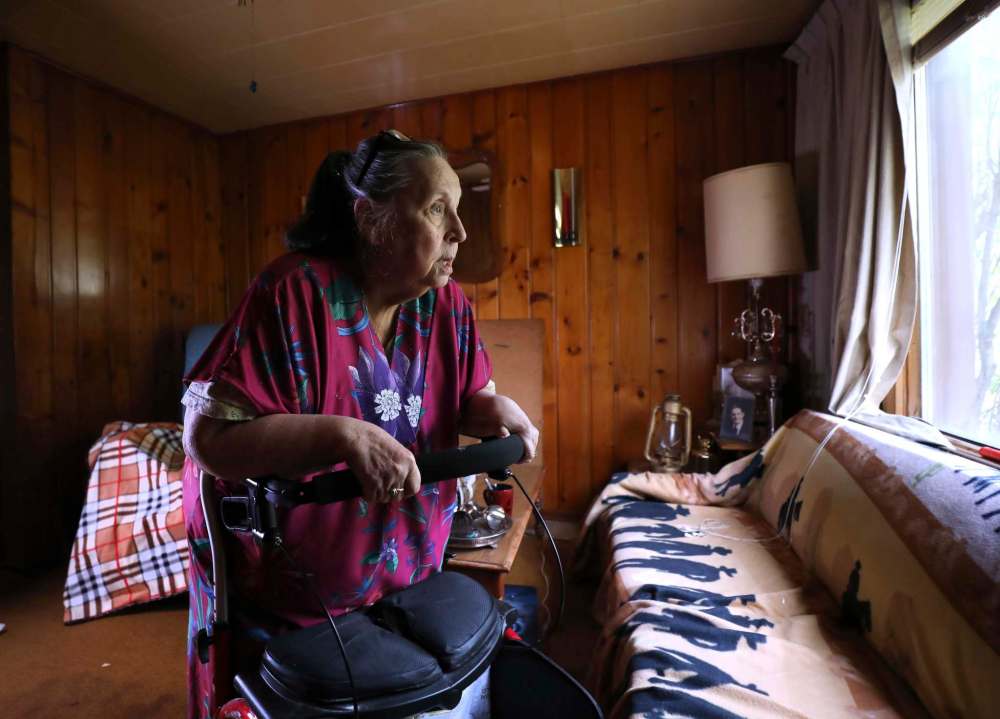Transit Plus riders irked by distance limits
Advertisement
Read this article for free:
or
Already have an account? Log in here »
To continue reading, please subscribe:
Monthly Digital Subscription
$0 for the first 4 weeks*
- Enjoy unlimited reading on winnipegfreepress.com
- Read the E-Edition, our digital replica newspaper
- Access News Break, our award-winning app
- Play interactive puzzles
*No charge for 4 weeks then price increases to the regular rate of $19.00 plus GST every four weeks. Offer available to new and qualified returning subscribers only. Cancel any time.
Monthly Digital Subscription
$4.75/week*
- Enjoy unlimited reading on winnipegfreepress.com
- Read the E-Edition, our digital replica newspaper
- Access News Break, our award-winning app
- Play interactive puzzles
*Billed as $19 plus GST every four weeks. Cancel any time.
To continue reading, please subscribe:
Add Free Press access to your Brandon Sun subscription for only an additional
$1 for the first 4 weeks*
*Your next subscription payment will increase by $1.00 and you will be charged $16.99 plus GST for four weeks. After four weeks, your payment will increase to $23.99 plus GST every four weeks.
Read unlimited articles for free today:
or
Already have an account? Log in here »
Hey there, time traveller!
This article was published 01/10/2019 (2263 days ago), so information in it may no longer be current.
A senior Transit Plus user says it’s time the city scraps a rule that restricts pick-up and drop-off service within range of the fixed route system after she was told to call a cab to travel two blocks.
Since the accessible transit service operates within the same geographical area as the standard system, its vehicles only service locations within 500 metres of a standard bus line.
Last week, Maureen Anderson requested a ride from the service formerly known as Handi-Transit to attend a Sunday night dinner at a friend’s house in Charleswood. The 76-year-old said she was told she couldn’t be dropped off at the house, which is located about one kilometre from a bus line, due to the 500-metre rule.

Instead, a representative suggested she call a cab to travel the remaining distance once she was dropped off nearby, Anderson said.
“It’s just another rap on the knuckles if you’re disabled or a senior,” she said, adding she’s previously visited the house via Transit Plus but a new system implemented in 2017 cracks down on the distance guideline.
“Would you have the guts to call (a cab) and say, ‘I’m only going 500 metres down the road’? I wouldn’t do that on a bet… I wouldn’t have the nerve to do that.”
This is not the first time Anderson, who navigates the city in a walker, has been restricted by what she calls a “ridiculous” rule. She said she once had to miss a funeral because it was too far from a bus stop.
Friends of hers with mobility needs have been dropped off at Brookside Cemetery only to have to call a cab to arrive at a gravestone inside since the entrance is as far as drivers go, she said.
Coun. Brian Mayes said he could not believe the ways the rule was limiting his constituents — at times, preventing people from travelling to cancer treatments or to visit their families — when he first learned of it.
Mayes first raised the issue at city hall in 2012, but said the massive cost of scrapping it — which was miscalculated at the time, to be between $665,000 – $873,000 annually, and has more recently been recalculated to cost about $400,000 — deterred council from making changes.
“That’s our policy and it just seemed unfair to me then and it seems unfair to me now,” Mayes said.

Now he believes there might finally be a will to address Transit Plus users’ concerns since he has heard from other councillors who have received similar complaints, including about limited service in Transcona and outside the Perimeter.
Earlier this year, the Manitoba ombudsman released a 152-page report on how the accessible transit service could be improved. One of its 19 recommendations is for the city to either broaden the 500-metre regulation to 1,000 metres or provide service within the entire city limits. It cites the current system as “unfairly restrictive” due to the expansion of Winnipeg’s suburbs and the need for accessible service.
Coun. Matt Allard, chairman of the public works committee, has previously said the city is working to implement all the ombudsman’s recommendations while working within the budget.
When asked for comment on the matter Tuesday, a spokesperson for Winnipeg Transit pointed to a report on the expansion of Transit Plus submitted to the committee in 2018. The report states it is important to consider that accessible vans and minibuses have low floors and have less clearance than standard vehicles so they could not operate in areas with poor road conditions.
maggie.macintosh@freepress.mb.ca
Twitter: @macintoshmaggie

Maggie Macintosh reports on education for the Winnipeg Free Press. Funding for the Free Press education reporter comes from the Government of Canada through the Local Journalism Initiative.
Our newsroom depends on a growing audience of readers to power our journalism. If you are not a paid reader, please consider becoming a subscriber.
Our newsroom depends on its audience of readers to power our journalism. Thank you for your support.


